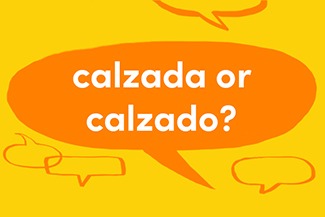This week’s Spanish word of the week is cabo.
Cabo is a noun that means end. You can listen to the pronunciation of cabo in the audio clip below:
function playAudio(url) { new Audio(url).play(); }In one of its uses cabo means the end of something:
Tira del cabo de la cuerda. Pull that end of the rope.
But it is much more often used in set expressions you are likely to come across. First of all al cabo de followed by a noun – generally a time expression. This is a more formal way than después of saying after:
Regresó al cabo de unos instantes. After a few moments he came back.
Al cabo de un rato dijo ... After a short while she said …
The phrase al fin y al cabo means after all, or at the end of the day:
Al fin y al cabo, no es más que un juego. It’s only a game, after all.
Al fin y al cabo, lo que importa es que seguimos juntos. At the end of the day, what matters is that we’re still together.
Llevar a cabo is very often used to mean to carry something out:
El proyecto nunca se llevó a cabo. The project was never carried out.
Las pruebas se pueden llevar a cabo con relativa facilidad. The tests are relatively easy to carry out.
Come back next week for another insight into Spanish vocabulary!



